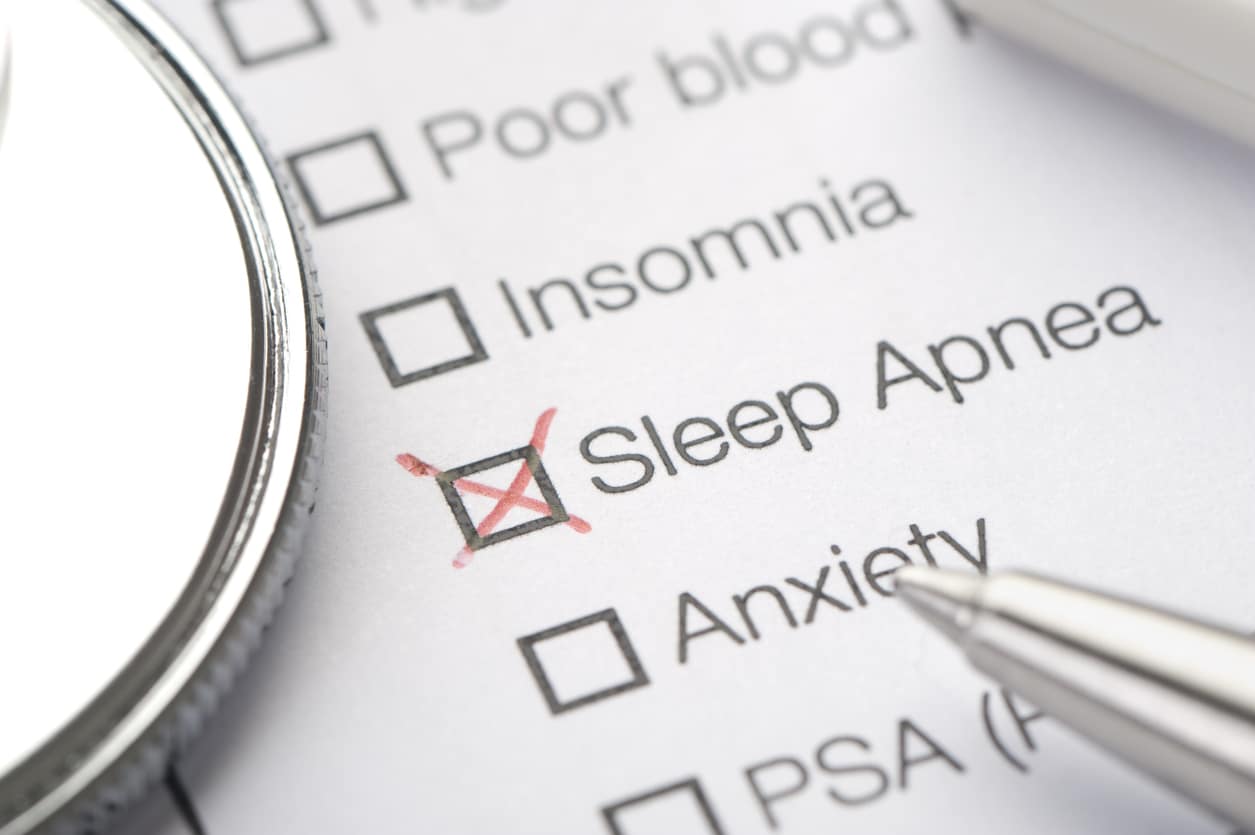Most people snore at some point in their lives, usually when suffering from a cold, during allergy season or after drinking. However, for many people, snoring is not merely an annoyance for their sleeping partner, but a sign of a serious health condition known as sleep apnea. Below is a guide to help you determine whether you are suffering from snoring or a sleep disorder.
The Link Between Snoring and Sleep Apnea

The American Academy of Otolaryngology reports that while 45 percent of the population snores occasionally and 25 percent snores chronically, 18 million people across the U.S. suffer from obstructive sleep apnea (OSA). This condition has been linked to a number of other issues, including obesity, heart disease, diabetes and high blood pressure.
The Difference Between Snoring and Sleep Apnea
Many people mistakenly believe that snoring and sleep apnea are interchangeable terms, but this is not the case. While everyone who suffers from OSA snores, not everyone who snores has OSA.
Snoring occurs when the airway in the mouth, nose or throat is partially blocked. It can be caused by a number of factors, including:
- Sinus infections
- Colds
- Allergies
- Deviated septum
- Poor muscle tone
- Other obstructions
Snoring is just one symptom of sleep apnea. Sleep apnea is diagnosed when a person has multiple pauses in their breathing pattern during sleep, which can result in disturbed, interrupted or light sleep. Lack of restful sleep, in turn, can cause extreme daytime drowsiness, difficulty concentrating, depression and anxiety.
Diagnosing Sleep Apnea
In order to be diagnosed with sleep apnea, you must be seen by a sleep specialist. A sleep doctor will first evaluate your symptoms, medical history and physical health, then will conduct a sleep study.
A sleep study analyzes how you sleep as well as how your body responds to sleep-related issues. Sleep studies may be conducted in a sleep center or at home. During the study, your doctor will record your vital signs, the amount of oxygen in your blood, how air moves through your airway, your brain activity, your chest movements and your snoring.
In addition to determining whether you suffer from OSA, the sleep study will detect the severity of the condition.
Your ability to sleep restfully affects all aspects of your life, as well as how well your partner sleeps. For more information or to schedule an appointment, contact the experts at ENT of Georgia today.